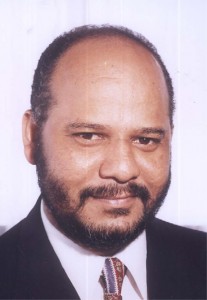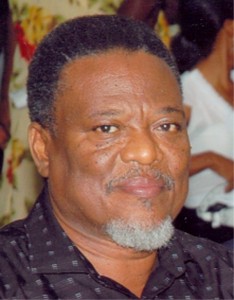In the midst of a global economic crisis, the administration has unveiled a budget that excluded a firewall to protect the local economy, with no shelter for the working class, PNCR-1G member Basil Williams said yesterday.

By failing to financially empower workers who crave spending power, Williams said, the budget offers nothing but stagnation and starvation, and slammed it as “in keeping with the anti-working class position of the PPP/C administration.”
His sharp criticism, which opened the budget debate at Parliament, emphasised what he described as the continuing trend of no tax cuts or increases in wages and salaries. He asserted that the 2009 budget which was presented to the National Assembly last Monday by Finance Minister Dr Ashni Singh, simply quotes figures of past increases in wages and salaries while failing to outline measures that will increase the spending power of workers in the country.
But Minister of Home Affairs, Clement Rohee dismissed the criticisms as being grossly unfounded, charging that the opposition voices in the country have repeatedly condemned the budget but have failed to propose any alternatives. “…Save for one half-baked eureka-type idea about establishing a think tank of qualified experts to analyse the economic situation and make recommendations there has been nothing further,” he said.
“Stop the griping!” Rohee charged opposition speakers, while urging them to support the national effort as presented by the government. He stated that the budget criticisms were merely generalised statements.
Rohee, in reference to a statement made by PNCR-1G member Volda Lawrence, declared that the opposition was ill-positioned to raise issues of accountability in the administration because it had been silent when corruption surfaced in law enforcement, at customs, at the National Insurance Scheme, in the banks and “even in the private sector when a stolen GPL transformer was found.”
Prime Minister Samuel Hinds called the budget a judicious and prudent plan and underscored the importance of criticism that is constructive.
He pointed out that no new taxes have appeared in the budget.

However, Williams was firm in his criticisms of the budget declaring that Guyana was by no means insulated from the ravages of the global recession, adding that no firewall had been erected in the budget despite the deepening of the recession. “Guyana’s economy is an integral part of the global economy because it depends heavily on financial assistance, particularly as it relates to loans and grants from international financial institutions, grants from bilateral relations and remittances,” Williams said, while stressing that the 2009 budget ought to have embodied measures to stimulate the economy and prevent a recession if it was not here already.

Williams accused the PPP/C government of handing out paltry salary increases well below the rate of inflation over the past years, and stated that it had now handed the public a “standing-still budget that means losses for Guyanese people in their real income”.
Further, he contended the government has worked to destroy a century of struggle by Hubert Nathaniel Critchlow for a united umbrella trade union body, adding that the administration is not interested in working with the Guyana Trades Union Congress (GTUC).
Hinds rebutted Williams’ arguments stating that government intends to spend more than it is collecting this year saying that provisions are set in the grants. He slammed the criticism that government has been “going around with a begging bowl” stating that if the administration had no such bowl there would be less money to be spent; $18.8B less in free grant money, he added.
Government will continue to seek grants in the present circumstances, Hinds said, since the country is blessed to receive them. He said that the government hopes to be in a position where it can someday offer grants.
Challenging Williams on the point of the population being deprived of real income by the government, Hinds said the administration firmly believes that individual income needs boosting. However, he stated that the PPP/C had always been realistic and is therefore of the view that increases in personal income came with increased individual productivity.
He added that real income has less to do with legislative measures and more with real improvements in national production.
Hinds also debunked the perception that government is anti-GTUC, saying that his party has a history of deep working relations with trade unions.
He declared that the government had long been waiting on people in the TUC to “change its ways and attitude and make the TUC a truly democratic organization and we have no problems with it”.

Lawrence emphasised accountability in her presentation and the need to wipe out corruption within the country. She called on the administration to release the audited report of the accounts for the 2005 floods and that of Carifesta X, and for the money from lotto to be placed in the national consolidated fund. Lawrence asserted that government has to redouble its efforts to clean up corruption in the country while pointing to global corruption indexes that have ranked Guyana particularly low.




